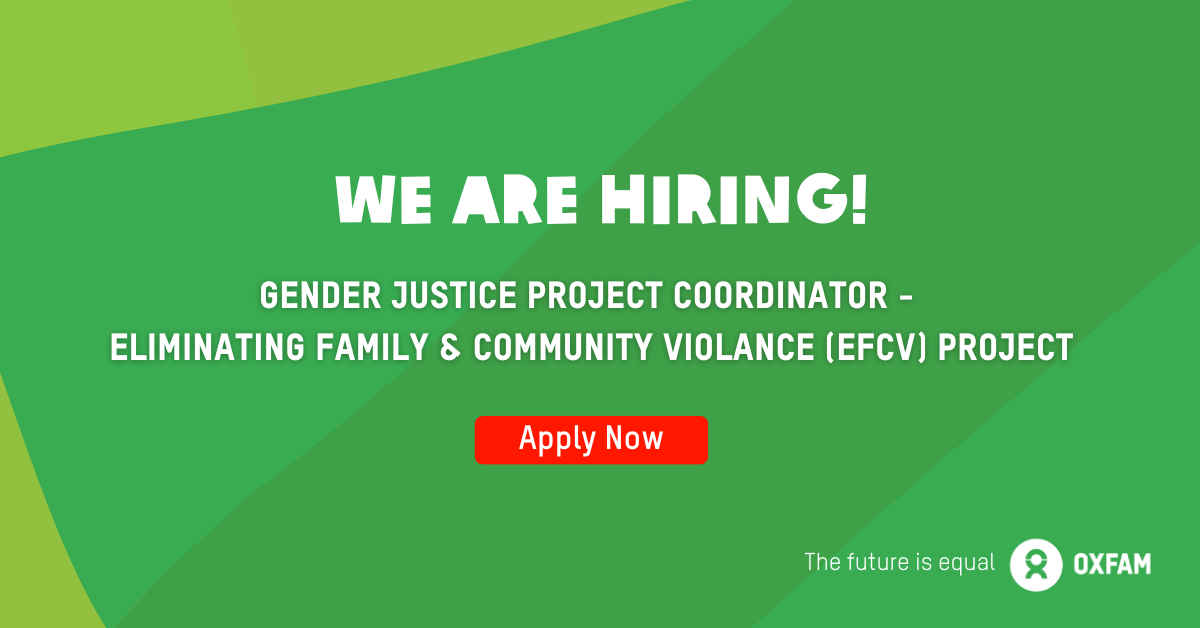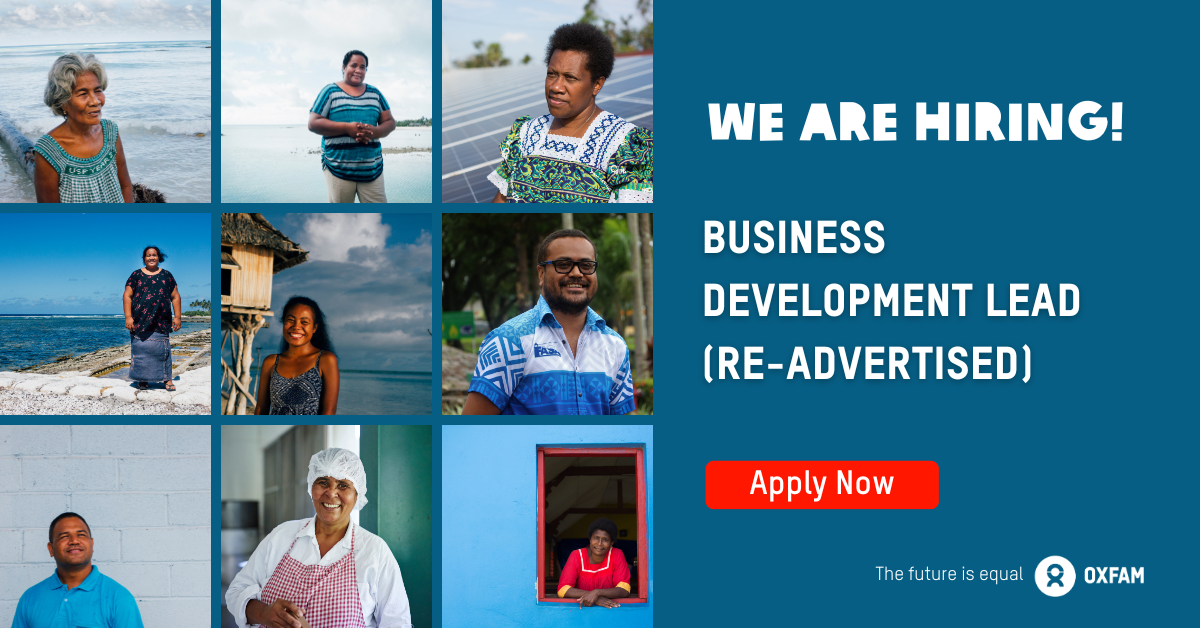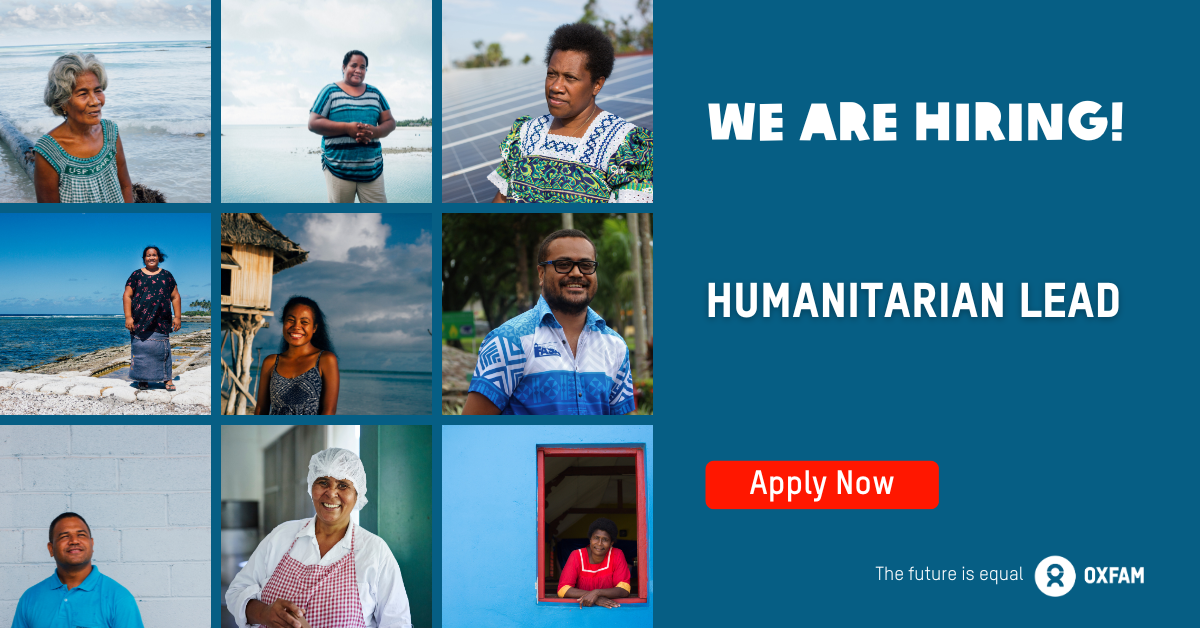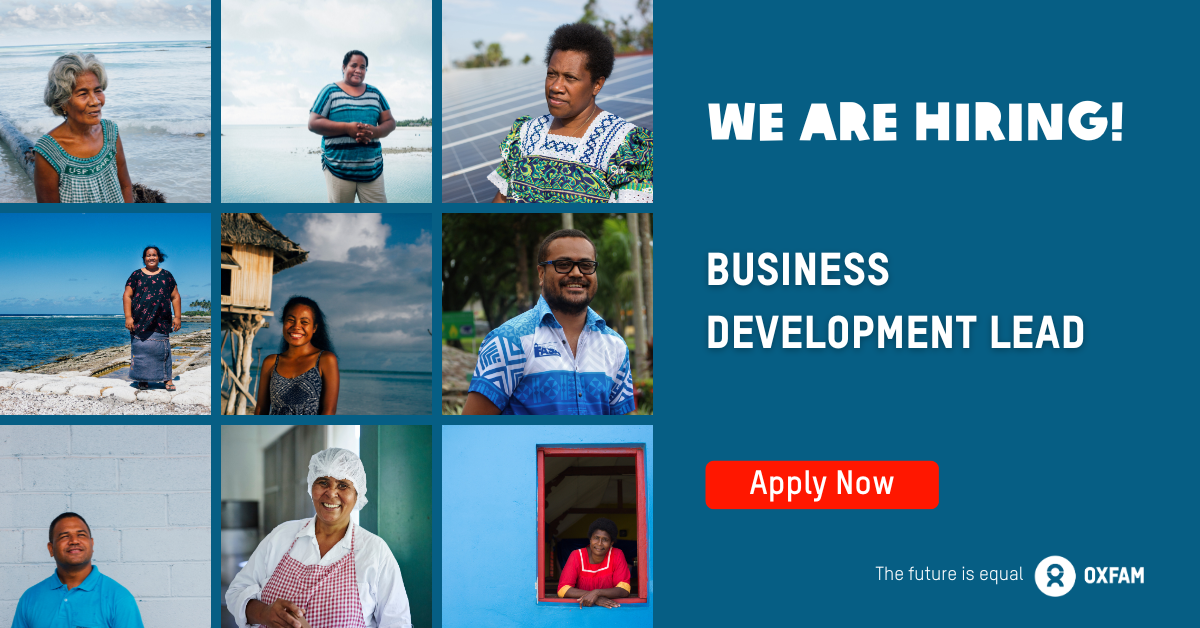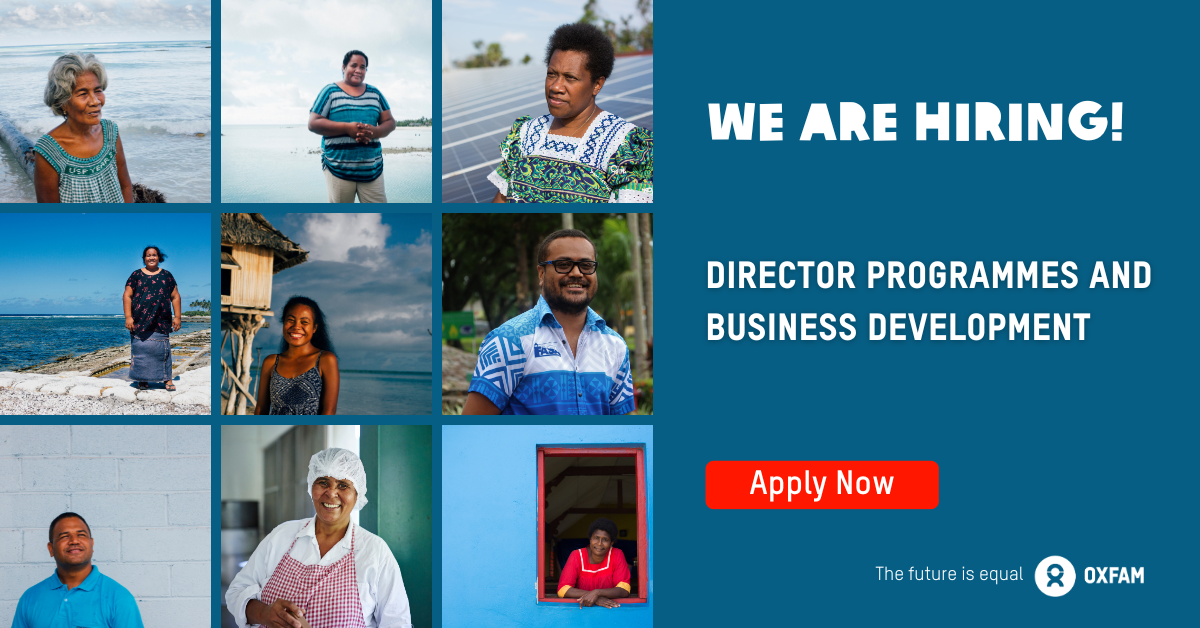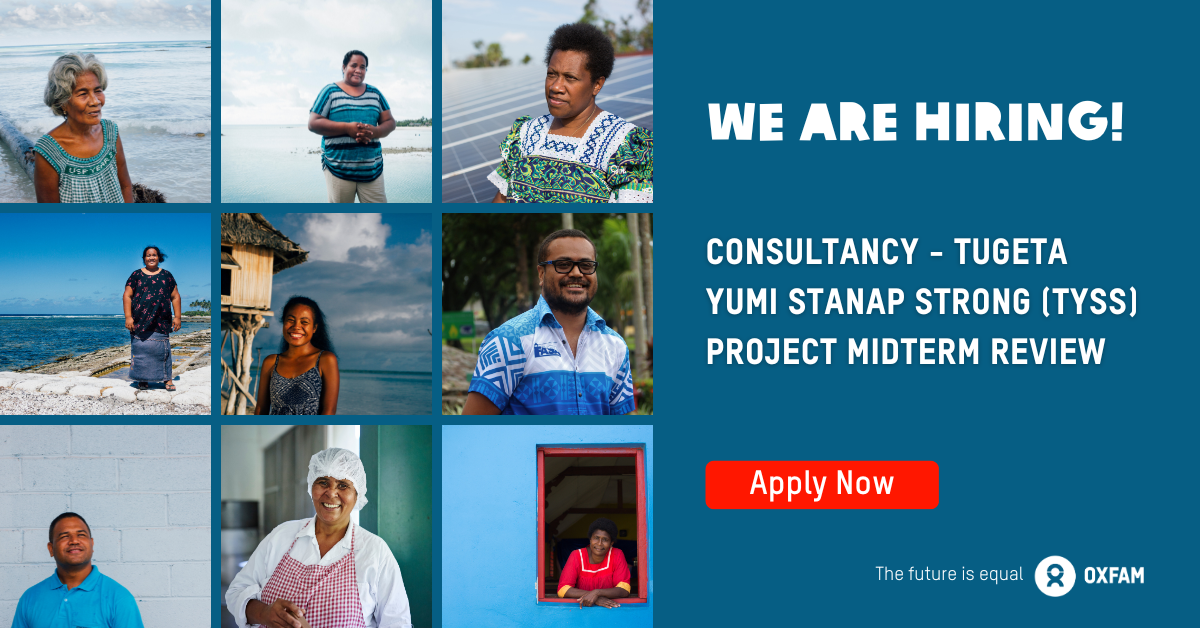-
Role: CLIMATE JUSTICE LEAD
- Applications for this role will close on: Friday 13 May 2022 (DUE DATE EXTENDED)
- See full Advert and Apply for this Job here: https://oxfampacific.bamboohr.com/jobs/view.php?id=161
- Location of role: Flexible within the Pacific Region
- Salary Level: C1
- Fixed Term contract ending: 30 June 2023
- Please contact Divono Vakatale for any questions: [email protected]
- We accept online applications only
Oxfam is a global movement of people working together to end the injustice of poverty.
That means, we tackle the inequality that keeps people poor. Together we save, protect and rebuild lives. When disaster strikes, we help people build better lives for themselves, and for others.
We take on issues like land rights, climate change and discrimination against women. And we won’t stop until every person on the planet can enjoy life free from poverty.
We are an international confederation working together with partners and local communities in the areas of humanitarian, development and campaigning, in more than 90 countries, Pacific countries included.
The total portfolio for the entire region is around AUD$15 million per annum. The Pacific regional platform works to support the following countries in the region: Papua New Guinea, Vanuatu, Solomon Islands, Fiji and the Polynesia Micronesia country cluster comprising of Samoa, Tonga, Tuvalu, Cook Islands, Niue, Kiribati, Palau, Nauru, the Federated States of Micronesia (FSM), Republic of the Marshall Islands (RMI) (Micronesia).
Country teams operate with a mix of direct implementation and via partners, the goal being to increase strategic partnerships where appropriate. Oxfam in the Pacific’s ambition is to ensure funds are available for longer-term regional and multi-country thematic programming.
This portfolio of programming sits under three thematic pillars, as defined by the Oxfam in the Pacific Regional Strategy 2020 – 2030. These three thematic pillars include Gender and Citizen Justice, Climate Justice and Economic Justice. Thematic Pillar leads are expected to work closely with each other as part of the Senior Programs Team.
In addition, they will work closely with Oxfam’s Program Management Unit (PMU) and Partnership, Evidence, Learning and Innovation (PELI) Hub to ensure learnings across the pillars and to create long-term impact, quality partnerships and knowledge products in collaboration with PELI leads.
Pillar leads also are a critical surge capacity in times of disaster response.
The Leads will contribute to Oxfam’s humanitarian preparedness and response operations around the Pacific, facilitating training opportunities for pillar staff to develop their secondary humanitarian technical support functions, and working with country Emergency Management Teams and the OiP Humanitarian Lead to lend pillar staff surge support to Oxfam’s response operations.
Our work is guided by Oxfam’s global values and by Pacific values and culture including: openness, flexibility, respect, equity, justice, solidarity, collaboration, sharing and humility. We also value local ownership and leadership of change processes.
Oxfam has embarked on a journey of self-reflection, focussing on its culture with the safeguarding being one of the key areas that the Pacific Team and Program will integrate into its ways of working to model behavioural change.
The Pacific Regional Strategy speaks to the programmatic and operational direction for the new look Pacific Region given the changes.
Oxfam is committed to preventing any type of unwanted behavior at work including sexual harassment, exploitation and abuse, lack of integrity and financial misconduct; and committed to promoting the welfare of children, young people and adults.
Oxfam expects all staff and volunteers to share this commitment through our code of conduct. We place a high priority on ensuring that only those who share and demonstrate our values are recruited to work for us.
Applications are invited for the position of: CLIMATE JUSTICE LEAD
The Role
Directly line managing a team of Oxfam in the Pacific’s Climate Justice Program Team Leads.
The role has a high level of capacity in people management and organisation and team management.
The role will require a focus on team management with a main responsibility in ensuring the efficient and effective mobilisation of thematic and technical support to the Climate Justice team and Oxfam in the Pacific’s programming partners to enable them to deliver sustainable high-quality, technically sound initiatives.
In achieving these objectives, the Climate Justice Lead’s role will need to operate at both strategic and operational capacities, engaging stakeholders and building relationships at the global, regional and local level.
Working in close coordination with the Director Programs & Business Development, the position will play a key role in performance management and work planning as well as developing and managing inter-departmental systems and processes.
The position will ensure all programs under this thematic pillar are managed and performing according to project plans and expectations.
Key Responsibilities and Accountabilities
- Program Oversight
- Program Design & Strategy
- Representation & Relationship Building
- Policy & Influencing
- Strategy
- People Management
- Public Engagement
You Will Have:
1. Technical Skills, Experience & Knowledge in the following areas:
- Management & Leadership
- Representation and Communication
- Finance & Funding
- Risk
- Strategic Analytics
2. General Education & Experience
Essential
- Demonstrable knowledge and experience in the design and delivery of Climate Justice Programmes in the Pacific region
- Experience in research,advocacy and influencing
- Project and financial management of large scale or complex development programmes (consortium management viewed favourably)
- Coordinating a cross multiple internal and external stakeholders to design and deliver programmes
- Building high performance teams and mentoring and coaching staff into increasingly senior positions
- Preparation and submission of funding proposals and budgets,as well as project progress reports
- Climate Justice as key knowledge area
Desirable
Education:
Degree/Advanced Degree in Natural Resources, Climate Change, DRR or related disciplines
Experience
- At least 5 years’ progressive management experience in the field of climate change, resilience, disaster risk reduction
- Experience in a matrix managed organisation
- Previous experience of working on economic justice-related issues is required, including field-based experience;
- Experience of project management, implementation and monitoring in line with Human Rights based and feminist Approaches;
- Demonstrated social skills of coordinating with different stakeholders and facilitating discussions;
- Demonstrated skills on preparing quality reports and other knowledge products.


